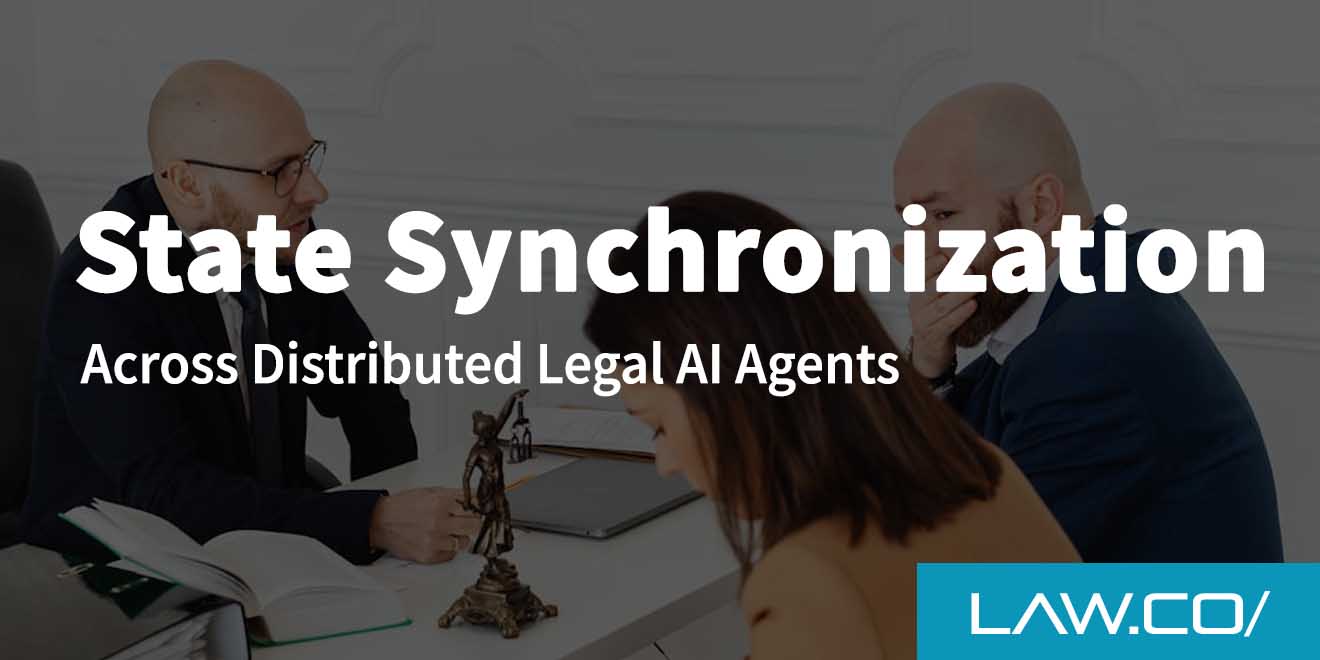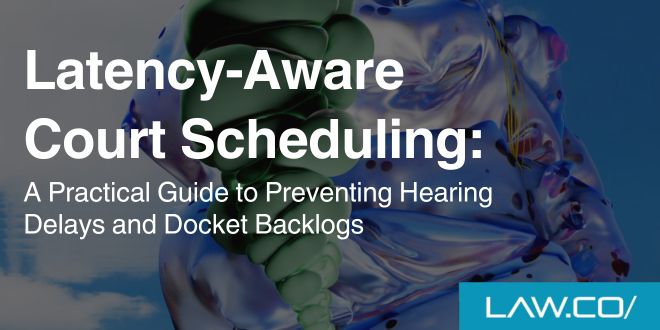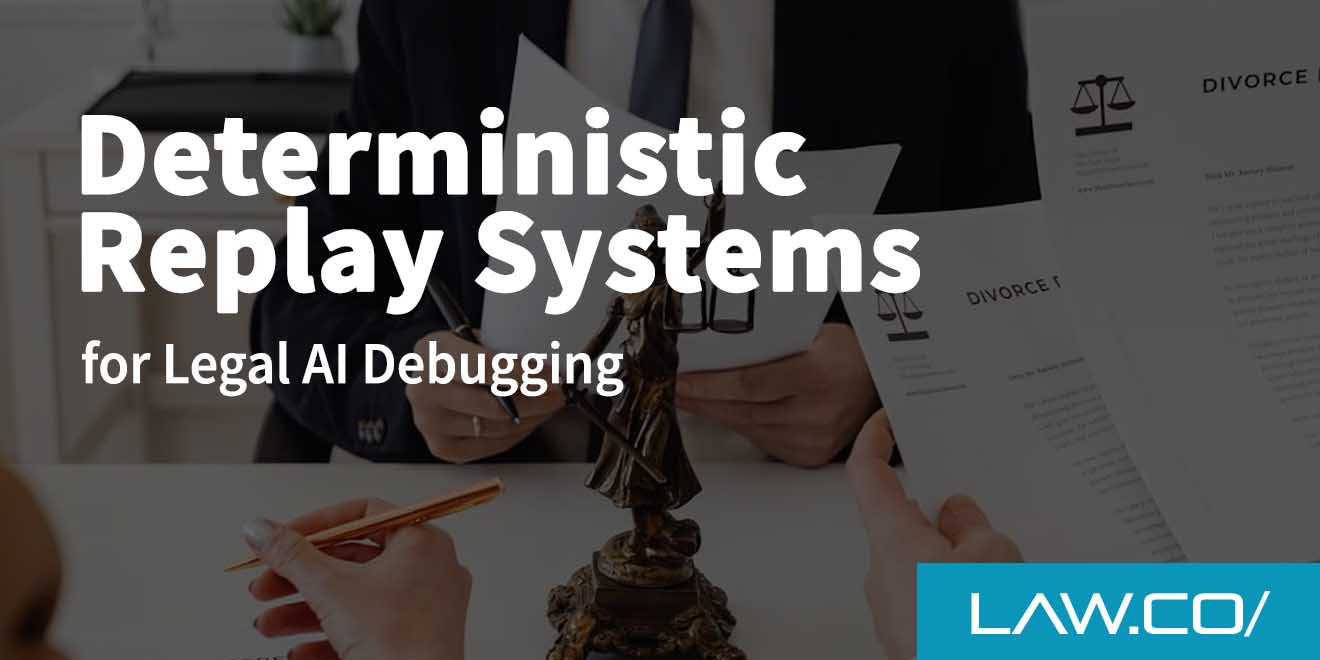

AI and Marketing: How to Make Your Law Firm More Efficient and Competitive
You may have a brilliant legal mind, a competent team, and a great reputation with former and present clients.
But you still may have trouble with competition.
Competing law firms in your area could end up siphoning your leads, restricting your revenue, and limiting your visibility. If you want to continue growing, both in terms of size and prominence, it's important for you to find strategic advantages that allow you to be more competitive.
One of the best ways to make your law firm more competitive is by making it more efficient in every way you can. And thanks to modern AI tools, it's easier to make your law firm efficient than ever before.
Law Firm Efficiency: The Path to Competitive Dominance
Efficiencies to path to competitive dominance in the legal world because it allows you to do more with less. Even if you're operating on the back foot, with limited brand visibility, limited budget, and limited revenue, you can still get a competitive edge if you make your business operate more smoothly.
There are many types of efficiency to consider in this pursuit:

· Time efficiency. Your time is incredibly valuable, and not just because you charge a steep hourly rate. Every moment you spend wrestling with some inconsequential problem or something that could have been automated is a moment wasted. You and the top minds at your law firm need to focus your energy and efforts on more important matters if you're going to succeed. This is one thing that separates great law firms from mediocre ones: at great law firms, the best people fully utilize their time potential.
· Operational efficiency. Operational efficiency refers to the efficiency of the profit generated by your business with relation to its operating costs. This is a function of many other types of efficiency, but it's worth considering independently. Ideally, your business will make as much money as possible while spending as little as possible, but this is hard to achieve in practice. Improving operational efficiency is a matter of carefully estimating and controlling your expenses such that each expense yields the highest possible value for your organization.
· Resource allocation efficiency. You also need to make sure that you're allocating your resources efficiently. You'll have many resources to consider, including your own team members, in this pursuit. Ultimately, you need to make sure that your entire team has all the resources they need and that you're using your team members according to their greatest strengths.
· Financial efficiency. Financial efficiency also requires you to avoid potentially problematic spending patterns and habits, such as paying for too many subscription services or overpaying for services you don't really need.
· Scaling efficiency. If your law firm is growing, you'll also need to think about the efficiency of your scaling. Growing a law firm is challenging in part because as you grow, both your income and expenses are going to increase. It often becomes difficult to find the right balance of investment, so you can maintain a steady trajectory of growth without overburdening yourself in the process.
The Many Forms of AI for Law Firms
AI is the solution to mastering the art of efficiency improvement. Most AI tools for law firms are designed with efficiency as their highest priority; developers seek to solve the problems of time and resource allocation common in the legal profession.
That said, if you want to harness the full power of AI, you'll need a number of different types of tools.
· Legal AI. Legal AI might be the first thing that comes to your mind, in part because it's been so heavily featured in the news lately and in part because it purports to solve problems specifically associated with lawyers. Depending on the legal AI solution you find, you'll probably get access to a wide range of helpful features, such as legal research, document drafting, document review, and more. When used responsibly, legal AI has the potential to save you countless hours of work every week, improve consistency within your organization, and even help you catch mistakes.
· Marketing AI. Marketing AI is extremely helpful in automating certain tasks associated with marketing, from email drip campaigns to market research. If you want your law firm to be more visible, prominent, and respected in your local market, you'll need a good marketing strategy to ground it. And while marketing AI isn't necessary to achieve good marketing results, it can be enormously helpful in making sure that you don't spend too much time or money in the process.
· Customer service AI. Customer service AI can help you with routine tasks like collecting information from new clients or sending out mass messages. That said, it has limited potential in the legal space, as most people expect direct, human service when working with legal professionals. Even so, customer service AI can help you automate many tasks and save significant time.
· Administrative and management AI. Law firms can also benefit from administrative and management AI. From digital assistants to project management platforms, AI-based tools can make quick work of tasks that would eventually take hours.
· Data analytics and insights. AI tools are especially powerful for data analytics and generating insights from information. Human beings are notoriously biased, subjective in their interpretations, and incapable of crunching large sets of numbers quickly. Analytic AI tools can help you better understand your customers, analyze key strengths and weaknesses within your business, and otherwise harness the full power of data to make your law firm better.
· General automation. Almost any type of automation can be beneficial for your law firm, assuming it's implemented properly. If the task is relatively simple and repetitive, an AI engine should be able to handle it, freeing up your more talented, knowledgeable team members so they can focus on more vital tasks.
The Costs and Limitations of AI
That said, AI isn't a silver bullet for a law firm trying to be more competitive. There are several costs and limitations that you'll need to keep in mind:
· Subscription fees. One of the most obvious categories of expenses you'll need to consider is subscription fees and other fees paid directly for AI tools. Generally, these are quite reasonable, but there are some types of tools that might stretch your budget. Always do a thorough cost benefit analysis so you know exactly what features and benefits you're getting compared to what you're paying. Just because a tool is expensive doesn't mean it's good, and just because the tool has potential benefits for your organization doesn't mean it's worth buying. Always study these numbers carefully.
· Integration. It's also important to understand how the AI product is going to integrate into your current technology stack and how compatible that's going to be with other products your organization currently uses. Is there a built-in AI assistant in any products you currently use? Can you conveniently take advantage of existing legal databases with new legal AI tools? Does this AI tool support integration with other popular products on the market?
· Training and education. It does take skill to use AI effectively. Most AI developers attempt to make their products as intuitive and usable as possible, but some tools are still much more accessible than others. No matter what, you'll need to have a plan in place for how you're going to train and educate your staff members on how to use AI tools both effectively and appropriately. Otherwise, you could actually lose time in your attempt to save it.
· Hallucinations. Don't forget that AI hallucinations are still a problem. If you aren't familiar, an AI hallucination is essentially a fabricated fact presented as true by an AI that genuinely doesn't know any better. AI hallucinations have already gotten lawyers in trouble in various incidents, and although they remain somewhat rare, they are a possibility you'll have to contend with. The good news is that AI hallucinations are easy to work around as long as you double check the output of your AI tools – and you should always double check your AI tool output anyway.
· Prompt and instruction dependence. Much of the value you get from your AI tools depends on how you use them. Your prompts and instructions will have an enormous impact on how much time you're able to save and the quality of the work you're able to produce. It takes time to develop skills like prompt engineering, and even experts sometimes struggle with providing adequate instructions.
· Biases and blind spots. Also, certain AI tools have come under fire for being biased or having significant blind spots. As a lawyer, it's important to preserve your reputation with objective, focused, reliable research. Again, the proper way to balance this weakness is to double check all the work done by your AI tool of choice to account for those blind spots and biases.
· Dependence. After relying on AI tools for so long, your own skills may become rusty. If you consistently generate drafts of legal documents with AI as a starting point, you may start to struggle creating those drafts on your own. As with GPS devices eating away at our ability to navigate, this is a natural byproduct of technological breakthroughs. For most, it's not that big of a deal; the skill erosion is relatively minor and it's totally irrelevant for as long as you can continue relying on AI tools.
Using AI to Improve Your Law Firm: Critical Strategies
So what are the best strategies for using AI to improve your law firm and become more efficient?
· Do your homework. Always do your due diligence before securing a new AI tool or integrating it into your law firm. You need to understand what this tool's greatest strengths and weaknesses are and how it's going to work for your organization. The better you understand the tool, the better you'll be able to integrate it.
· Choose the right combination of tools. It's also important to choose the right combination of tools. Certain categories of AI tools may not be relevant to your business at all; for example, if you want to provide the best customer service possible, you may want to prioritize human interactions over automated AI-based ones. And of course, some AI tools are strictly better than others, so it's important to choose the best tools on the market for your law firm.
· Estimate, then monitor your ROI. Efficiency is often a byproduct of ROI, or return on investment. Essentially, that means guaranteeing that every investment you make provides the greatest possible value to your organization. With AI tools, you'll need to consider this on two levels. First, you can use AI tools to estimate and improve the ROI of various functions within your law firm. Second, you can calculate the ROI of each AI tool itself to make sure it's worth continuing to invest in.
· Learn everything you can. The more you learn about AI tools and their use in the legal profession (as well as in business more broadly), the better you'll be able to utilize them. Keep increasing your knowledge as the efficiency of your business increases.
· Practice prompt engineering. Prompt engineering is the practice of optimizing your prompts to get better results, faster from your AI tools. With some research and practice, you can easily get better at this technical skill. With more refined approaches, you'll be able to get better outputs – and get them in record time. The more you practice, the better you'll get.
· Be mindful of weaknesses and limitations. We've already outlined some of the biggest weaknesses and limitations associated with AI, but there are others, and there may be new variations in the future. In your processes and workflows, make sure you account for any weaknesses and limitations associated with your products.
· Practice full disclosure. Finally, practice full disclosure and transparency. As a lawyer, you're working under strict ethical requirements, so it's important to be open and honest about all the tools you use to help your clients. Be sure to review all your work thoroughly and let all relevant parties know that there are AI tools in play.
When you properly account for the costs and limitations, AI can radically transform your law firm for the better. You can eliminate repetitive and redundant work, improve allocation of resources, save time, save money, and ultimately turn your business into an efficient powerhouse.
Everything starts with choosing the right AI tools for your law firm.
Are you ready to begin the process?
Check out a free demo of our legal AI product today!

%201.svg)










